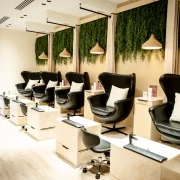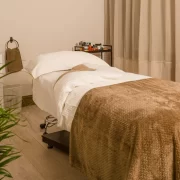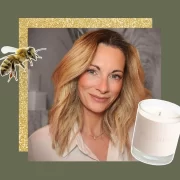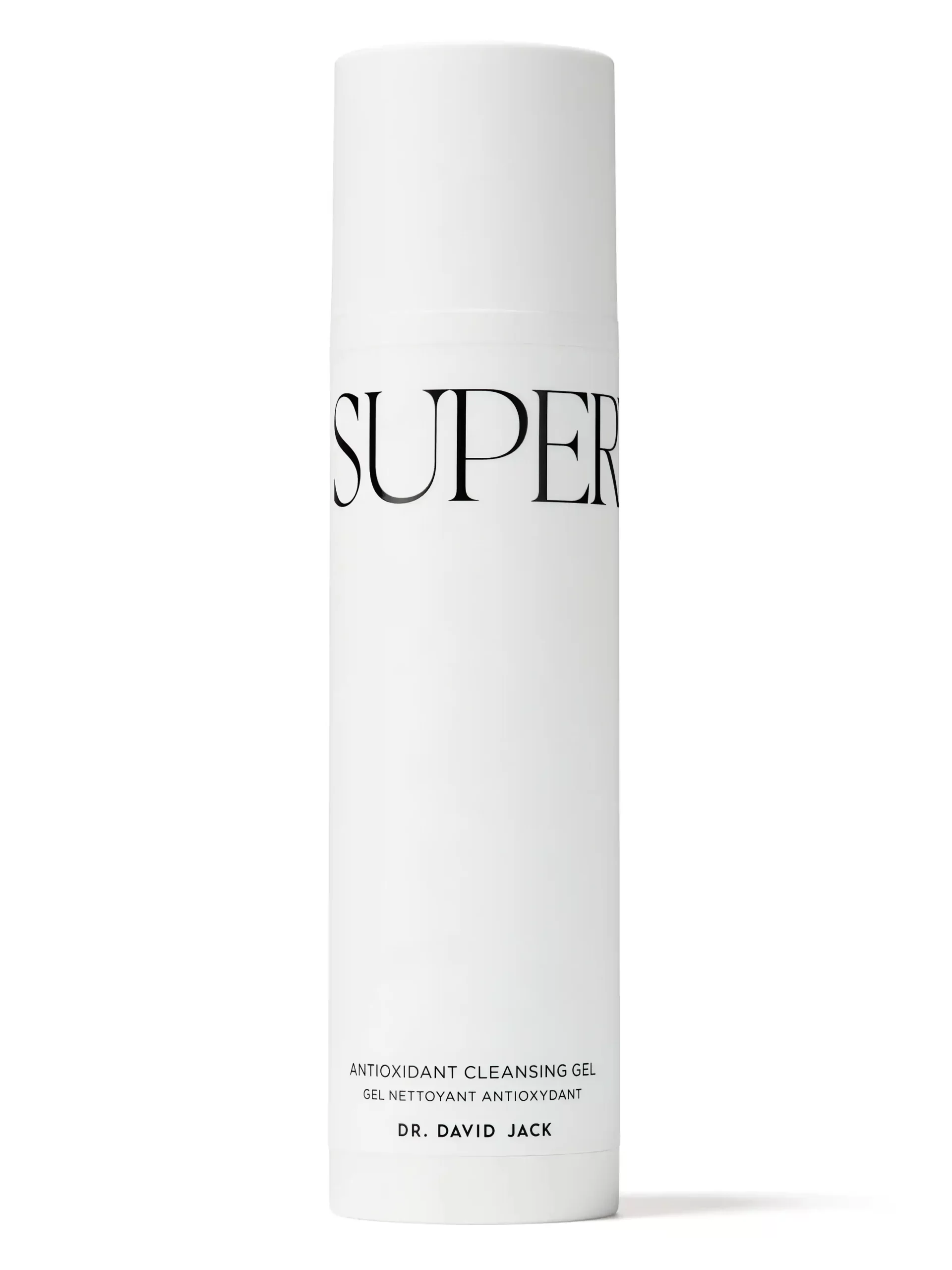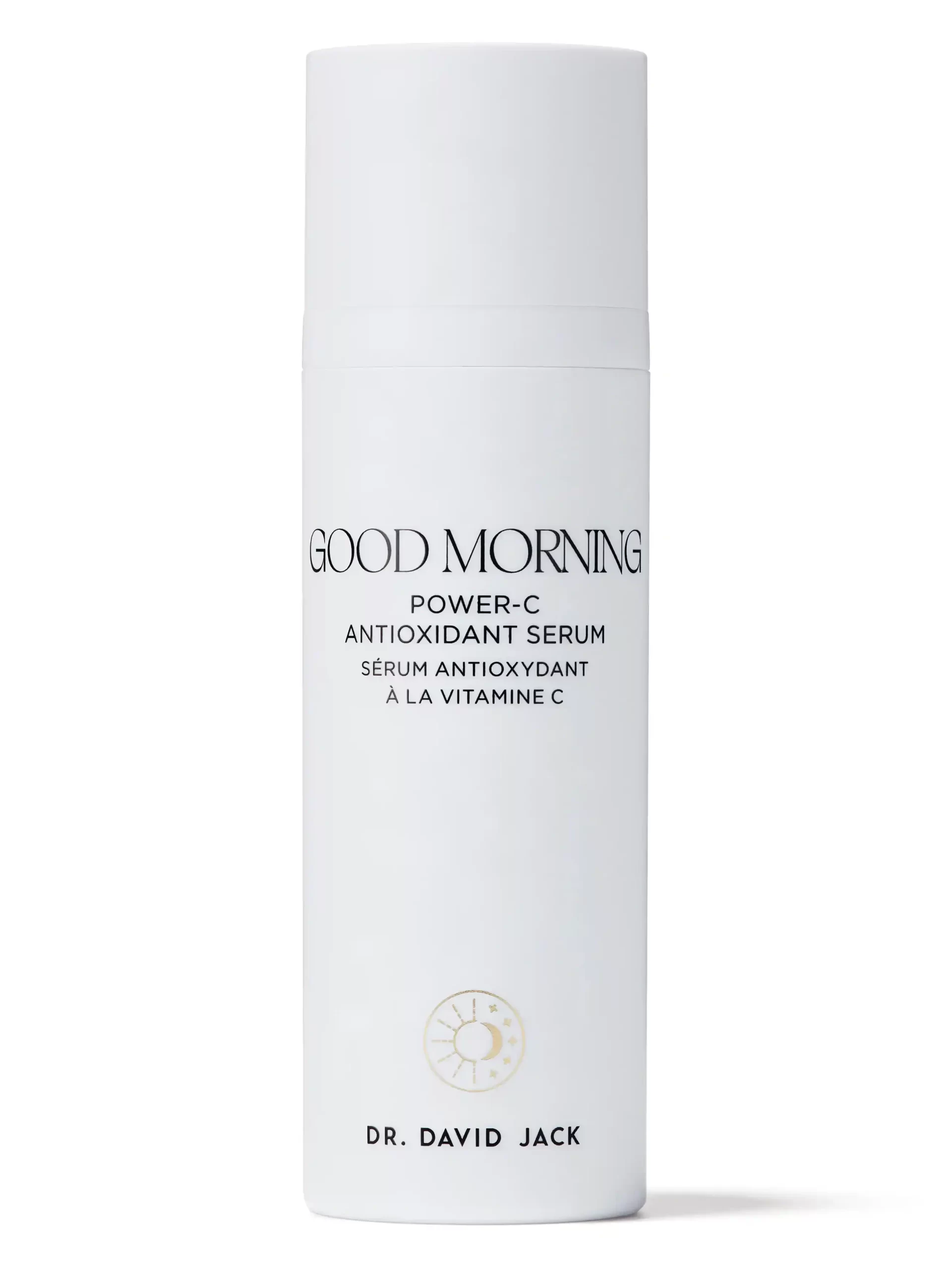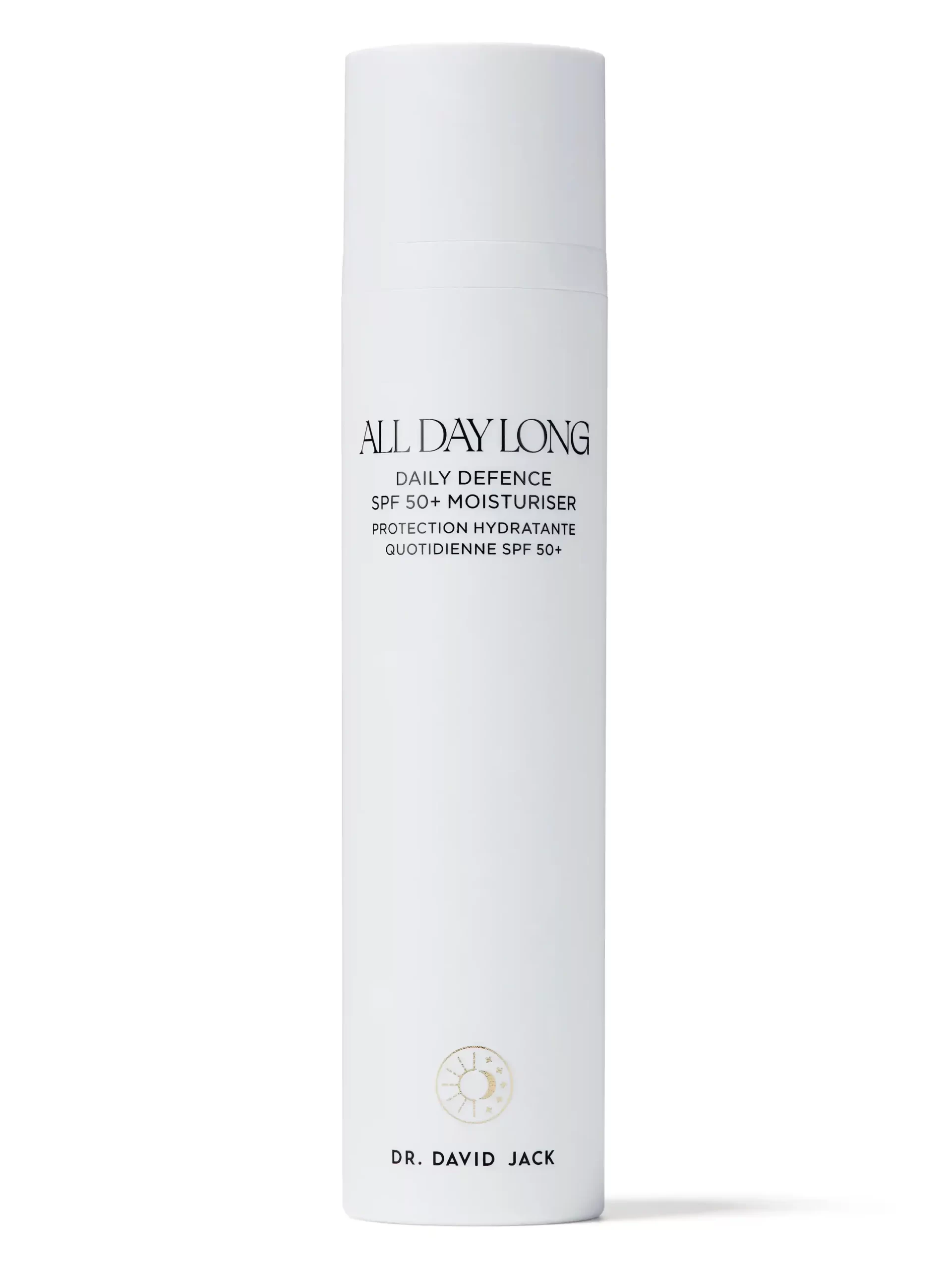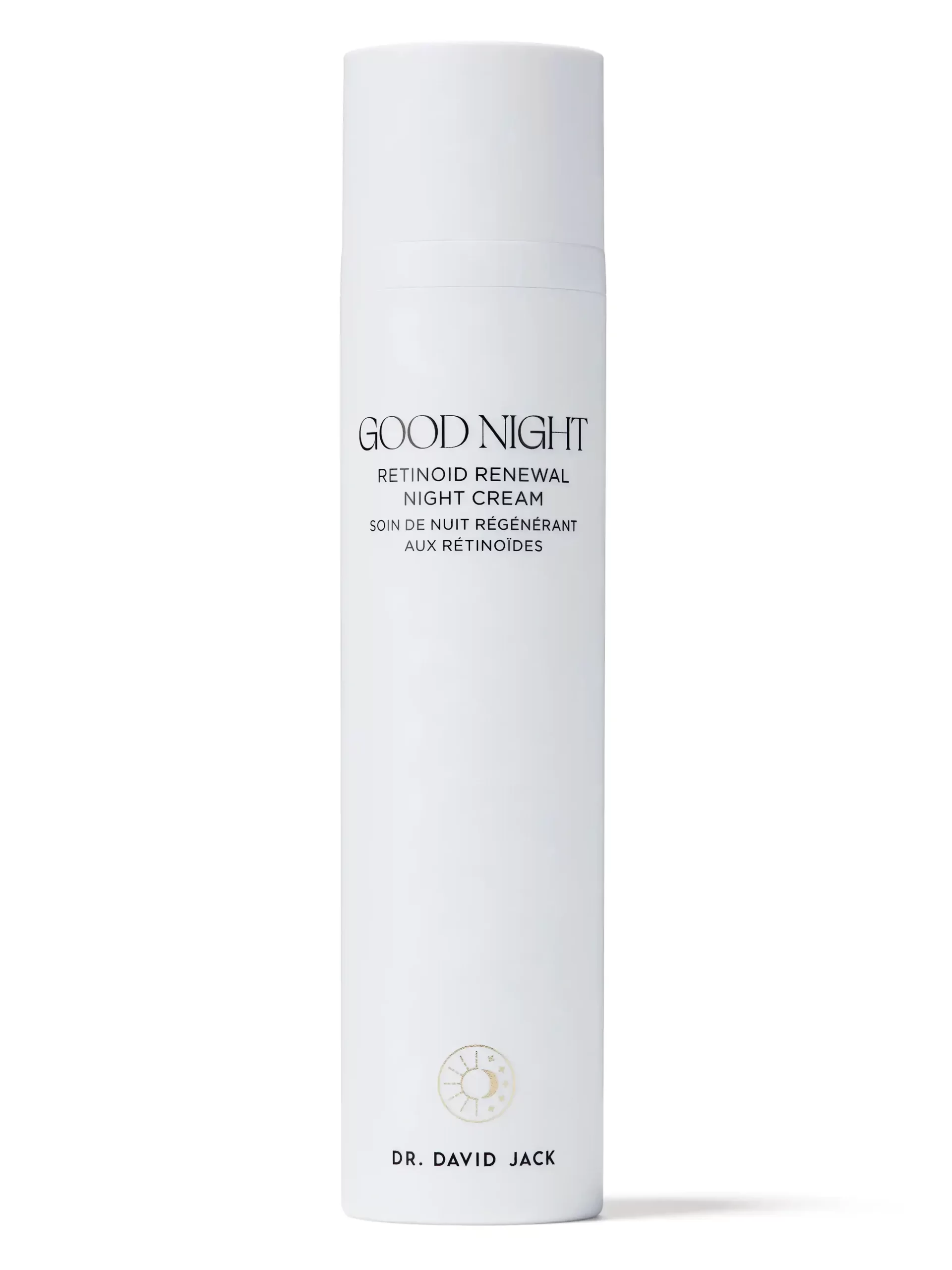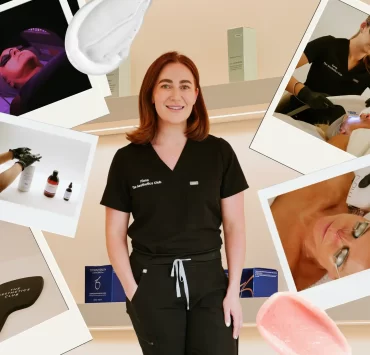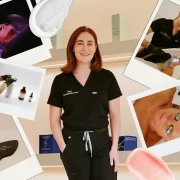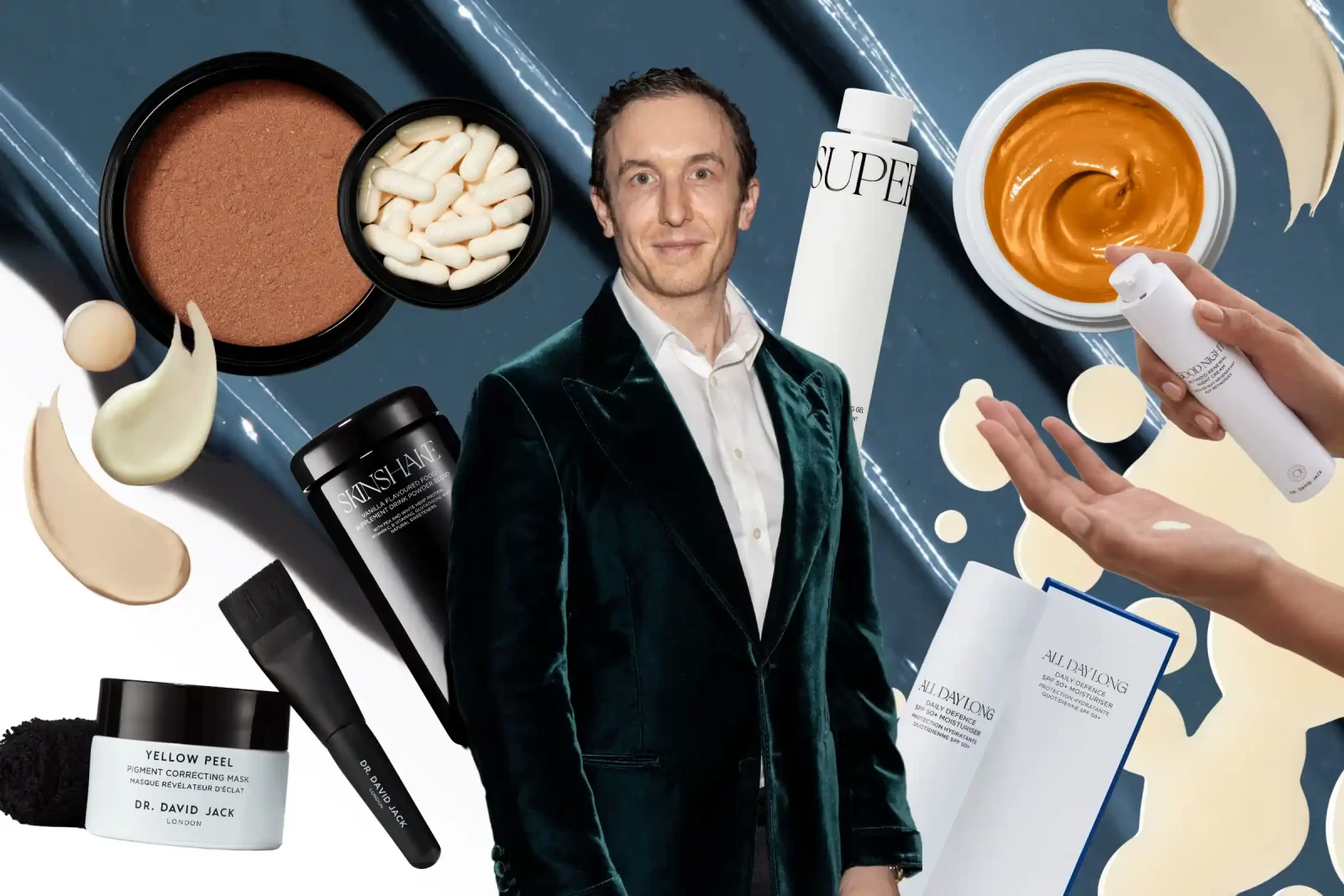
Gemma has a background in newspapers and PR, working across…
Welcome to The Beauty Shelf, our new Q&A series with top Scottish beauty, skincare, and wellness professionals. We take a peek inside their bathroom shelves and get insider tips and tricks to help you elevate your own routines.
If you buy something, we may earn an affiliate commission.
Born and raised in Scotland, Dr. David Jack is part of the new generation of medical doctors turned entrepreneurs. After studying medicine, anatomy, and embryology at the University of Glasgow, his clinical career in both plastic surgery and aesthetic medicine allowed him to travel extensively and gain experience in a wide range of specialties. He now brings this expertise to his four clinics across London and his newly opened clinic in Edinburgh on Howe Street.
Dr. Jack’s first introduction to skincare was during his work in Plastic Surgery within the NHS. He recalls, “Prior to that, I didn’t even moisturise, and I really did not look after my skin in the sun. Seeing lots of patients with melanomas and other skin cancers highlighted the importance of a consistent and effective skincare regimen, particularly the use of daily SPF.”
In 2018, due to popular demand from his clients, Dr. Jack launched his own skincare line, Dr. David Jack Skincare. The brand embodies the concept of integrative skincare, which optimises skin health both topically and from within, with the support of supplements. His products are scientifically based, using active ingredients and high-quality formulations to deliver tangible results for all skin types and concerns.
Here, Dr. Jack shares his expert skincare routine, favourite treatments, and invaluable tips for achieving healthy, radiant skin.
On daily routines…
Can you walk us through your daily summer skincare routine, from morning to night?
I’m slightly boring as I only use my own products – I really can’t deal with a long routine, so I use just four products in total! It took me so long to get the formulas right, so I know they give my skin everything it needs.
My morning routine typically starts with a gentle cleanser to prepare the skin for the day – cleansing helps to set the pH of the skin, allowing active ingredients to penetrate best. I use my Supernova cleanser (which I launched last year!) – it has a blend of alpha hydroxy acids and hyaluronic acid, together with some prebiotics that help to support the skin’s microbiome.
This is followed by my Good Morning Vitamin C + Niacinamide serum, a 10% vitamin C serum that gives the first layer of antioxidant support to the skin. Being Scottish, I obviously abused my skin in the sun for several years when I was a teen, so I’m paying for it now with pigmentation issues. Good Morning helps with this and also protects against environmental damage from pollution, etc.
I then apply All Day Long, my broad-spectrum SPF 50+ moisturiser, which also has a blue light filter (carotolino) as I am often in front of a computer screen at work.
In the evening, I cleanse again to remove sunscreen and neutralised pollutants, followed by my Good Night retinoid cream – retinoids help with literally everything when it comes to ageing skin, so they are an essential part of a routine.
On facials…
Do you get regular facials? What is your go-to facial treatment at the clinic and what are the main benefits you’ve noticed from your favourite facials?
Yes, I believe regular facials are crucial for maintaining skin health. My go-to treatment at the moment is the ExoTech treatment, which combines microneedling with exosomes (little stem cell pockets containing collagen-stimulating growth factors) to rejuvenate the skin. I’m also a big fan of Profhilo (a collagen-boosting injectable). Decent, medical facials can help skincare work better, as well as gradually tackling issues like pigmentation and skin texture irregularities. I find facials really help with the overall look of the skin and are a nice way to help maintain it between ‘bigger’ treatments like injectables.
On cleansing…
How important is cleansing in your skincare routine, and what types of cleansers do you prefer for different seasons?
Cleansing is an important step in any skincare routine as it helps to neutralise pollutants, set the pH of the skin for actives whilst removing dirt and excessive oils. It also helps to nurture the microbiome of the skin, which is important in many of the skin’s barrier functions. I generally use the same cleanser throughout the year. The only change in the wintertime I’d say is potentially using a little more moisturiser when central heating can dry out the skin a little.
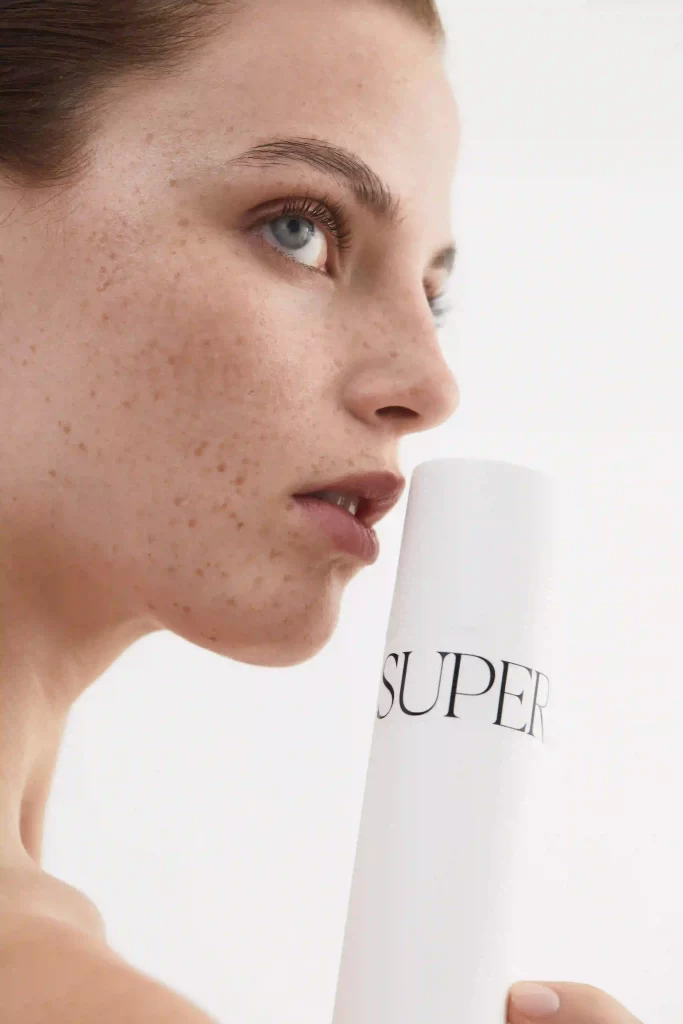
On at-home treatments…
How do you incorporate at-home facial treatments into your routine? Any tips for those wanting to try it themselves?
I like to do a slightly deeper exfoliation once per week—over-exfoliation can sometimes cause disruption of the microbiome and sensitivity, so I try to limit it to this interval. I generally recommend incorporating a weekly peel or mask tailored to your skin’s needs. For instance, my Blue Face Peel is great for hydrating the skin (it’s generally my go-to as I have slightly dry skin)—it is also quite calming as it contains a derivative of azelaic acid. Using home LED devices (such as the Dermalux Flex) can also be good if you have acne or sensitive skin.
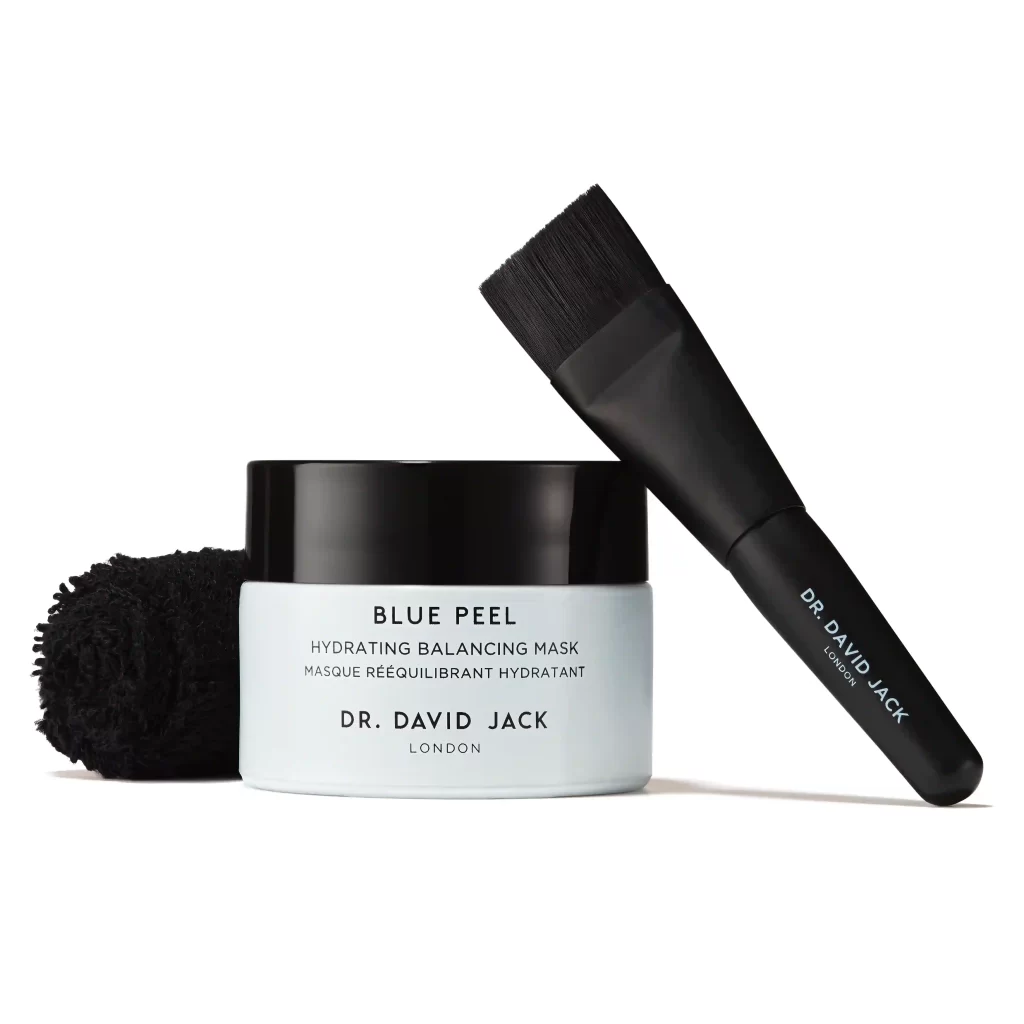
Blue Peel Mask
£149.00
On serums and moisturisers….
What are your go-to serums for daytime and nighttime, and what skin concerns do they address?
For daytime, I use my Good Morning Vitamin C + Niacinamide + Azelaic Acid Serum, which protects against oxidative stress and brightens the skin. As I mentioned, I suffer a bit from hyperpigmentation related to old sun damage, as well as dryness—so this helps with both of these issues due to the combination of anti-inflammatory and anti-pigmentation ingredients, as well as a hydrating complex of vegan snail slime and mixed molecular weight hyaluronic acid.
At night, I use a retinoid cream to help boost collagen production and also help with pigmentation. Both of these products target issues including pigmentation, collagen loss, and sun damage, as well as helping to protect against future damage.
What’s your favourite moisturiser and why is it a standout product for you?
The only moisturiser I use is my All Day Long SPF 50+ moisturiser—sunscreen is the single most important product that anyone needs to protect against future skin damage.
I developed this one to provide a high level of UVA/UVB cover, whilst also providing some antioxidant support (with niacinamide, glutathione, and azelaic acid), hydration (with hyaluronic acid and vegan snail slime), as well as blue light defence, without being greasy. Our formulator said it’s probably the most complex SPF formulation that is currently on the market! I like it because it is multi-functional and the cover seems to last for a long time.
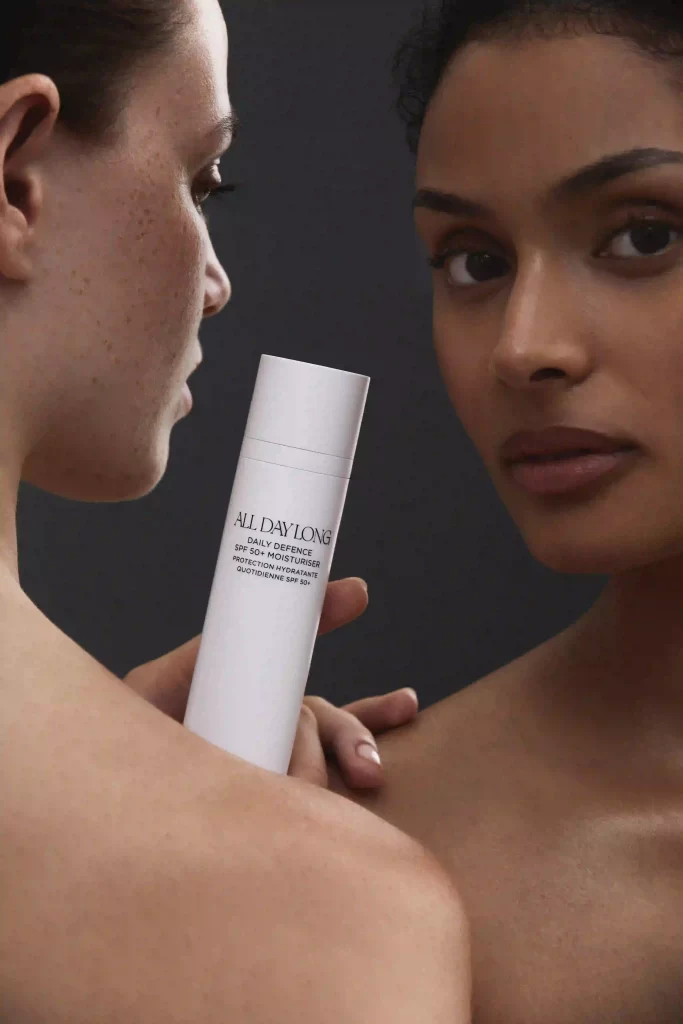
If I had to only use one skincare product for the rest of my life, this would be it.
On skincare economics…
There is a popular belief that price equals quality when it comes to skincare. How do you feel about this?
While high-quality ingredients and formulations often come at a higher price (raw active ingredients are increasingly expensive), it doesn’t mean that all expensive products are effective. Many brands built on ‘luxury’ moisturisers (I won’t name any, but I’m sure you can guess which ones I mean!) often highlight a single ‘hero’ ingredient with very little evidence backing it. It’s important to look at the ingredient list and formulation quality rather than just the price tag.
My approach is to create products that are both effective and reasonably priced for what they contain – as my formulations are exceptionally complex, you know that you are getting the highest quality products without being overcharged for something that is essentially a well-packaged moisturiser.
On lips and eyes…
Can you share your thoughts on lip care products you use?
Lip care is an often-overlooked part of skincare. I recommend using a hydrating lip balm with SPF during the day and a more nourishing treatment at night to keep lips hydrated. Ingredients like hyaluronic acid and shea butter are excellent for maintaining lip moisture levels.
Do you have a favourite eye-care product? What do you love about it?
I’m currently developing an eye cream with my formulator; however, at the moment, my favourite is Obagi’s Elastiderm Eye Cream. I think eye creams can be tricky, and often using your normal skincare products around the eyes is sufficient, unless you have very sensitive skin.
What are your thoughts on eye masks, and do you think they are a must-have or novelty product?
Eye masks can help temporarily hydrate the area around the eyes; however, they are unlikely to offer much long-term benefit. I personally wouldn’t spend too much money on them.
On integrative skincare…
Your brand has an emphasis on integrative skincare. Could you tell us what this means to you and how it varies from conventional skincare methods?
Integrative skincare combines topical treatments with internal health approaches, including nutrition and supplements, to optimise skin health from within. Since the deeper layers of the dermis can’t generally be accessed by topical skincare products such as antioxidants (though they are protected by SPF), using supplements ensures your skin (and other organs) receive plenty of nutrients.
Good sleep is also important for overall skin health, as well as minimising stress and cortisol levels, as these can negatively impact the skin and ageing. Supplements are a core part of my range and include ingredients that help to support collagen production and combat oxidative stress in the skin, as well as aiding sleep and stress management (with adaptogens and nootropics).
My products were designed to take the thought out of cosmeceutical skincare, so essentially provide all of the fundamentals of a good routine, eliminating the need for anything else and simplifying things to just a few quick steps. Since starting to test them and now that I use them consistently, my skin is far better hydrated and less sun-damaged than it was a few years ago! I have less pigmentation and my skin tone and hydration are now much more even.
On lessons and advice…
Do you have any advice for someone just starting to develop their skincare routine?
Start with the basics: a good cleanser, an antioxidant serum, and a sunscreen for the day. A retinoid is optional but always a good idea—sometimes it is necessary to start this gradually to prevent too much drying or irritation (known as retinization—a temporary effect while your skin adjusts to retinoids).
What are some of the most valuable skincare lessons you’ve learned from treating and working with your patients over the years?
One of the most valuable lessons is the importance of caring for your skin’s barrier and natural microbiome. I see many patients who frequently change their routines, often damaging the epidermis and barrier with excessive exfoliation and harsh products, doing more harm than good. Stick to a good, simple skincare routine with high-quality products over the long term, and you will see the best results.
What’s your best piece of advice for maintaining healthy skin as you age?
My best advice is to start early with preventative measures, like daily sun protection from a young age. I’ve seen many patients who have done this, and their skin appears much healthier and more vibrant compared to their peers. Incorporating antioxidant-rich products and retinoids into your skincare routine can also be very beneficial. When it comes to treatments, it’s important to keep a balanced approach. Overusing injectables, such as fillers and toxins, can sometimes lead to an unnatural look that doesn’t enhance one’s natural beauty.
On diet and lifestyle…
What are your non-negotiables when it comes to living a healthy lifestyle?
Regular exercise and a balanced diet rich in brightly coloured fruits and vegetables are non-negotiable. I struggle with sleep personally, but ideally, a good eight hours per night is very important and will do wonders for your skin and general hormonal health.
How, from your experience, does diet and lifestyle affect the appearance of skin?
Diet and lifestyle play a fundamental role in skin health. Inflammation and oxidative stress resulting from a poor lifestyle can significantly affect collagen and elastin levels in the skin, as well as the skin’s cellular functions. A healthy lifestyle, including exercise, can improve overall cellular function and repair, provided the skin is protected when exercising outdoors. A low-inflammation diet will, over the long term, reduce many of the effects of ageing in the skin and other organs.
What are the best foods, supplements, and lifestyle habits for getting better skin?
Foods rich in antioxidants, which are generally brightly coloured, like berries and leafy greens, as well as healthy fats found in fish and nuts, are excellent for the skin. Vitamins C and E, carotenoids, and B vitamins all play roles in skin repair and even pigmentation, so it’s important to include these in your supplement routines.
Avoiding processed foods, which can be very inflammatory, and sugars, which can cause glycation of proteins in the skin and inflammation, is crucial.
Maintaining good gut health is also a major consideration in skin health. The gut-skin axis is a well-documented phenomenon, where good gut health significantly impacts skin health, and vice versa. This is partly related to the microbiome of the gut and the skin, so optimising good gut bacteria with prebiotics, probiotics, and postbiotics is increasingly shown to improve skin health.

Finally, on tips and tricks…
What are some of your top skincare tips or tricks that you’ve learned over the years?
- Sun protection: This is the single most important part of any skincare routine. Always use SPF to prevent damage and premature ageing, even in winter as UVA levels are just as high as in summer.
- Consistency is key: Stick to a simple, effective routine.
- Active ingredients: Incorporate ingredients that have proven benefits for your skin, particularly well-tested ones like Vitamin C, azelaic acid, and retinol for long-term benefits.
Visit drdavidjack.com.

